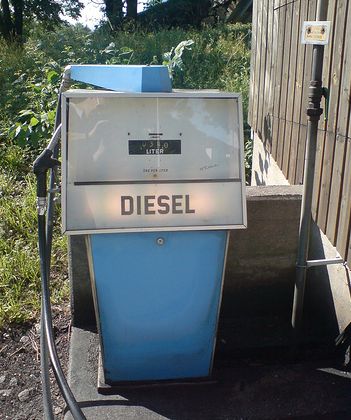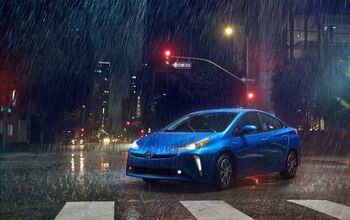Study: Diesel's Best Days Behind It
The Center for Automotive Research (CAR) at Gelsenkirchen University of Applied Sciences has released a report which claims that 2007 will have been the historical high-water mark for diesel sales in Germany. Reported in Auto Motor Und Sport, the study shows a steady climb in diesel market share over the last decade, from 14.6 percent in 1995 to 47.7 percent in 2007. But CAR calculates that market share will retreat to 44 percent by 2010 before diving back to 30 percent by 2020. With US diesel sales still a ways from a predicted 15 percent market share by 2015, Germany is still the major, which is why the projected decline is so significant. The underlying causes are simply related to the shrinking economic incentives for buying diesels. Diesel has traditionally been cheaper than gasoline in Germany, but that difference is slipping away and in America diesel is significantly more expensive. Additionally, diesels require increasingly complex particle filters and exhaust cleaners to meet new emissions standards, driving up purchase costs. Finally, gas engines are simply becoming more efficient, especially as hybrid drivetrains proliferate. In short, if diesel's most favored market is moving away from the stuff, this trend will only grow. With news coming in that VW's new Jetta TDI won't be as efficient as the Prius, don't expect diesel sales to jump stateside anytime soon.
More by Edward Niedermeyer


































Comments
Join the conversation
I'll believe that diesels are on their way out when heavy duty trucks, farm tractors, commercial fishing boats, earth moving equipment, and European taxicabs quit using them. In these applications it's strictly economics rather than fashion/fad etc.
Note that most of those engines aren't subject to emissions control, at least nothing a car owner would recognize as such. What the Jetta TDI showed this week, in my estimation, is that "clean diesel", even though it's barely clean enough to be allowed here (much dirtier than most gas engines), is too clean to be economically competitive.
Yes, diesel does have it's place. That place is in trucks where diesel can provide power at an efficiency that gasoline can't touch. I think one good segment for diesels to take over would be all light trucks 3/4 ton and over. It just makes a lot more sense considering the loads these trucks are intended for. But in cars it just seems a bit counterproductive. Yes, you get better mpg but the emissions are worse than gasoline. Maybe the carbon output is less but particulates are much worse. You can add extra stuff and tech to to properly scrub the exhaust, but by that time it seems things have moved beyond the practical to "doing it just because you can". Maybe it makes sense in Europe but I still don't see it making sense in the US. Yes, a typical US 4 banger diesel might get 40% better mpg than a gasser, but after you end up paying 25% more for the fuel you're net savings is only 15%. Then you have to consider extra hassle of finding someone competent to repair it and added maintenance expense. And with the hype there is an increase in the price of diesel cars over gassers, so that eats in to the savings as well. I would rather buy a hybrid. There is more complexity, but they run cleaner and the maintenance isn't any worse.